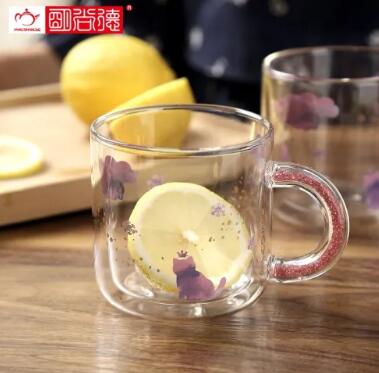May. 15, 2023
Business Services
Glass cups have been used for centuries by people around the world, and the history of their creation and evolution is a fascinating one. From the earliest glass-making techniques in ancient Egypt to the modern manufacturing processes of today, glass cups have played a significant role in human society.
Glass-making is believed to have originated in Mesopotamia around 3500 BCE. The earliest known glass objects were small beads and jewelry, but glass cups soon followed. The ancient Egyptians were among the first to create glass cups, using a technique known as core-forming. This involved creating a core out of a material such as mud or clay, which was then covered with molten glass and shaped using various tools.
As time passed, glass-making techniques continued to evolve. In the first century BCE, the Romans developed a new method called mold-blowing. This involved blowing molten glass into a mold, which would give the glass its shape. The resulting glass cups were more uniform in shape and size than those made using core-forming.
Glass-making continued to advance during the Middle Ages, particularly in Europe. By the 14th century, glass-making had become a major industry, with artisans creating intricate designs and patterns in glass cups and other objects. The Renaissance brought about even more innovation in glass-making, with the development of new techniques such as engraving and painting on glass.

In the 18th and 19th centuries, glass-making became even more sophisticated. The invention of the steam engine and other technological advances allowed for greater production of glass cups and other objects. Glassware became more affordable and accessible to the general population, and glass cups became a staple in households around the world.
Additional reading:
Today, glass cups are made using a variety of manufacturing techniques, including machine-made and hand-blown methods. Machine-made glass cups are created using automated processes, while hand-blown glass cups are made by skilled artisans who use traditional techniques to create unique and beautiful designs.
In addition to traditional glass cups, modern technology has led to the creation of specialty glassware for specific uses. For example, tempered glass cups are designed to withstand high temperatures and are commonly used for hot beverages like coffee and tea. Borosilicate glass cups are highly resistant to thermal shock and are used for laboratory experiments and in industrial settings.
In recent years, there has been a growing interest in eco-friendly and sustainable glassware. Glass cups are highly recyclable and can be melted down and reused to create new glassware. Additionally, some manufacturers are using recycled glass to create new glassware, reducing the amount of waste produced by the industry.
In conclusion, glass cups have a rich and varied history that spans thousands of years. From the earliest glass-making techniques of ancient Egypt to the modern manufacturing processes of today, glass cups have evolved and adapted to meet the changing needs and tastes of society. Whether used for practical or decorative purposes, glass cups continue to be a beloved and timeless part of human culture.If you want to know more about glass, you can click here.
Previous: Is N2 He Leak Testing the Key to Ensuring Perfect Seals?
Next: What are the benefits of drinking from borosilicate glasses?
Related Articles
If you are interested in sending in a Guest Blogger Submission,welcome to write for us!
All Comments ( 0 )